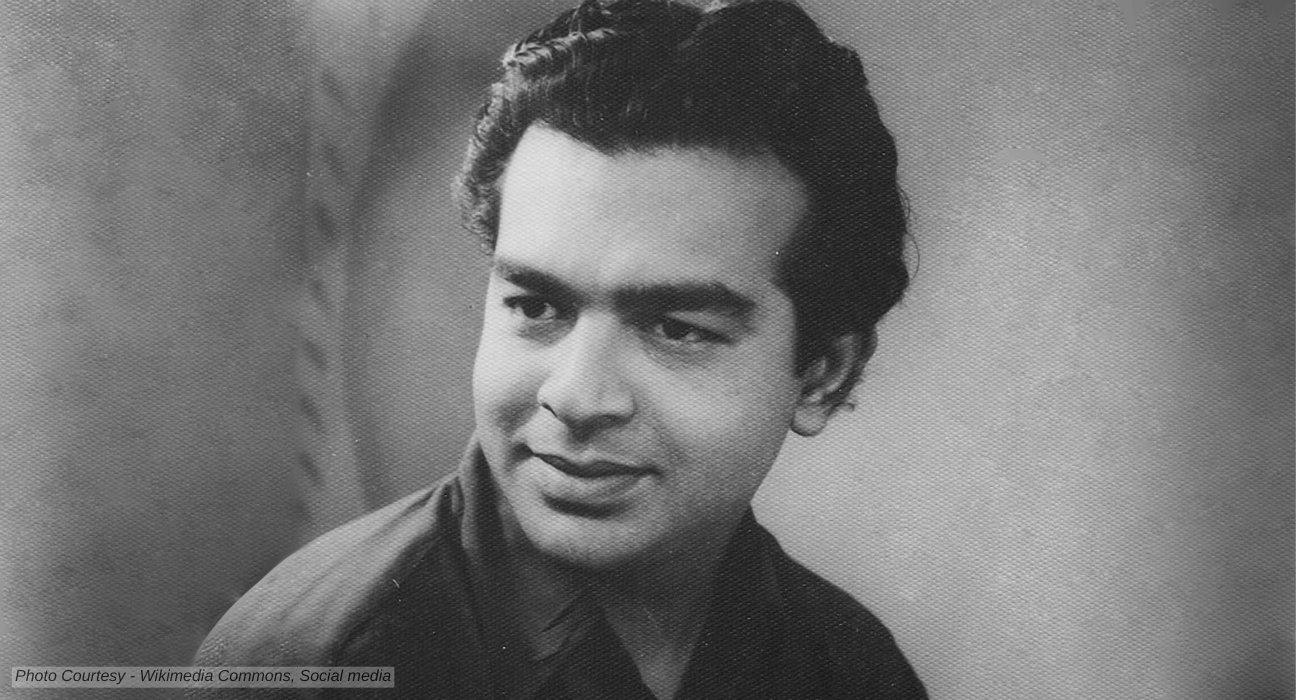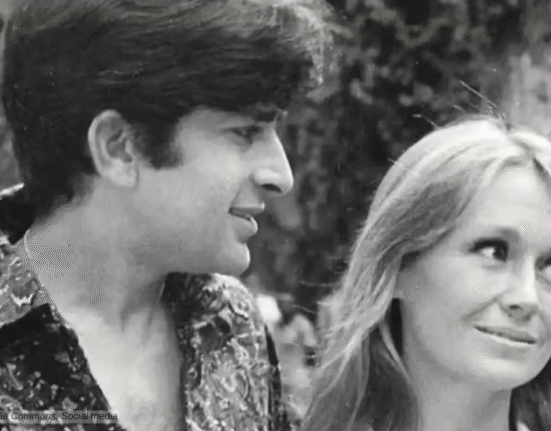Throughout the history of films in India, we have seen many exceptionally talented actors grace the silver screen. Among them, Tarun Bose stands out as a remarkable talent, especially for his intense and realistic portrayals of middle-class men in his career of almost one and a half decades before his untimely demise at the age of 43.
Tarun Bose worked with some of the most acclaimed directors and actors of his time, such as Bimal Roy, Hrishikesh Mukherjee, Asit Sen, Dulal Guha, Satyen Bose, Sunil Dutt, Ashok Kumar, Dharmendra, Manoj Kumar, and Amitabh Bachchan. He starred in more than 40 films in his short career span, which include gems like Apradhi Kaun?, Sujata, Bandini, Gumnaam, Farar, Anupama, Devar, Oonche Log, and many more.
Early Life
Bose was born in Kolkata on September 28, 1928. Some records list the date as September 28. He grew up in Nagpur, where he studied at St. Francis High School. He developed a passion for acting at a young age and started performing in local plays and radio dramas. At 15, he auditioned for All India Radio in Nagpur and landed roles in radio plays. He performed in local theater, tackling plays in English, Hindi, Urdu, and Bengali. He was fluent in Hindi and Urdu, but he had to learn Bengali later to do Bengali plays. Critics initially mocked his Bengali accent in a play, but he improved it through practice.
In college, he served as drama club secretary and directed plays like “Ulka.” Initially, he joined the Post and Telegraph Department as a stable job, but he continued to pursue his dream of becoming an actor. Legendary director Bimal Roy spotted him during a Nagpur play in 1957. Roy offered Bose a role, marking his entry into films. Bose moved to Bombay, now Mumbai, on a salary from Roy’s production house.
Tarun Bose In Films
Bose made his acting debut in 1957 with the Asit Sen’s “Apradhi Kaun?,” which also starred Mala Sinha and Abhi Bhattacharya. In the murder mystery, Bose played the role of a doctor, crucial to the narrative. The film set the stage for his future in the industry, showcasing his ability to bring authenticity to his characters.

He appeared in small part in Bimal Roy’s 1958 film “Madhumati” starring Dilip Kumar and Vyajayantimala. His breakthrough came in 1959 with “Sujata,” where he played the uppercast man who adopted an untouchable girl played by nutan. In the film he shared the screen with Nutan and Sunil Dutt, Shashikala, Lalita Pawar and Sulochana Latkar. His portrayal of a caring father torn by societal norms on untouchability was praised by all.
Over the years, Tarun Bose became known for his intense and compelling performances. His subtle expressions conveyed inner conflict without overacting.
His portrayal of complex characters in films like Benazir (1964), Kohra (1964), Oonche Log (1965), Faraar (1965), Devar (1966), Anokhi Raat (1968), Satyakam (1969) and Jyot Jale (1973), earned him immense critical acclaim and a special place in the hearts of cinema enthusiasts.
Famous Works
In “Bandini” (1963), Bose brought dignity to the role which can easily be a one dimensional role if not played with utmost care. His grounded performance enhanced the film’s emotional weight. In “Mujhe Jeene Do” (1963), as a police superintendent, he showed compassion amid dacoity themes, balancing authority with humanity. “Gumnaam” (1965) featured him as Madhusudan Sharma aka Madan Lal, a criminal out for revange. His menacing presence drove the plot’s tension.
One of his most important roles came in “Anupama” (1966),” directed by Hrishikesh Mukherjee. Bose’s role as the father who neglects his daughter was a study in restraint. His performance brought out the complexities of a man battling his own demons while trying to connect with his child. In “Satyakam” (1969) he played the best friend of Dharmendra.


Bose’s ability to bring to life the middle-class professional, often playing doctors, judges, or lawyers, was unparalleled. Some of his other films include Shama (1961), Kabuliwala (1961), Bhaiyya (1961), Kanch Ki Gudiya (1961), Maa Beta (1962), Umeed (1962), Meri Surat Teri Ankhen (1963), Mujhe Jeene Do (1963), Begaana (1963), Chand Aur Suraj (1965), Akashdeep (1965), Bhaiyaa (1965), Love in Tokyo (1966), Chhoti Si Mulaqat (1967), Oos Raat Ke Baad (1969), Aan Milo Sajna (1970), Gunah Aur Kanoon (1970), Chhoti Bahu (1971), Memsaab (1971), Bikhare Moti (1971), Hum Tum Aur Woh (1971), Aankhon Aankhon Mein (1972), and many more.
Personal Life
Bose married in 1949. His wife stayed out of the spotlight. They had a son who died young, then another son, and daughter Shilpi Bose. Tarun Bose’s life was cut short when he passed away on March 8, 1972, at the age of 43. His untimely death left a void in the Indian film industry that is still felt today.
Tarun Bose on IMDB













Leave feedback about this